Das Olympische Bildungsmagazin
Don Julio verpflichtet Maradona
- Jens Weinreich
- 29. Oktober 2008
- 23:12
- 19 Kommentare
Julio Humberto Grondona, der Pate des argentinischen Fußballs, trägt einen schweren, goldenen Siegelring. „Todo pasa“ steht drauf. Es ist das Motto des 77-jährigen Senior Vice President des Fußball-Weltverbandes Fifa und argentinischen Verbandspräsidenten (quasi auf Lebenszeit). Alles geht vorbei, ich mach das schon.
Mein Lieblingsfoto von Sepp und Don Julio: auf der Krönungsmesse 2007 in Zürich
Don Julio, dicker Kumpel vom Fifa-Sepp (wie man auf dem Foto sehen kann) und seit vielen Jahren auch Chef der Fifa-Finanzkommission (sic!), hat bislang alle Klippen umschifft. Sein jüngster Coup: um seinen Posten zu retten, verpflichtete er kurzerhand das Drogen-Wrack Diego Armando Maradona als Nationaltrainer. Und stellte ihm Carlos Bilardo als Teammanager zur Seite. Todo pasa.
Über Diego ist anderswo viel zu lesen. Ich will hier auch nicht mit der Geschichte einer Sünde langweilen, denn ich habe mir im vergangenen Jahrhundert, damals spielte Diego für den SSC Neapel, mal in Leipzig ein Autogramm von der Hand Gottes zeichnen lassen.
Was ich vielmehr zur aktuellen Diskussion beisteuern kann, ist ein Kapitel meines argentinischen Freundes Ezequiel Fernandez Moores aus unserem gemeinsamen Buch „Korruption im Sport“. Der wunderbare Ezequiel kennt sie alle: Diego, Don Julio und noch ein paar andere Spitzbuben. Okay, der Text ist zwei Jahre alt, doch egal, man muss ihn gelesen haben, um ein bisschen was von Don Julio zu verstehen.
***
The Godfather Don Julio
The Argentine dictator behind Fifa President Joseph Blatter
Julio Humberto Grondona, FIFA’s Senior Vice President, the great Godfather of South American football and President of the Argentine Football Association (AFA) since 1979, proudly remembers when his mandate began: Almost together with Woytila’s papacy and Diego Armando Maradona’s successful international career. But Maradona left the field in 1997 and John Paul the Second died in 2005.
In his twenty-seven-year mandate (nun sind es schon 29 Jahre), Grondona did not only survive John Paul the Second and the sporting Maradona, but also four de facto Presidents and eight democratic Presidents in Argentina. He also survived eighty-one supporters who died as victims of the endless violence that rules football in Argentina. He survived almost forty-three cases of doping, eight strikes by players and three strikes by referees. Grondona also survived about fifty legal raids on his own offices, the AFA offices and those of his partners.
Grondona is now seventy-four years old (jetzt 77). His age is not an obstacle. Grondona has already warned that in 2007 he will begin his eighth mandate which will last until 2011; by then he will be thirty-two years at the head of the AFA. Thirty-two years with Don Julio. He likes people to call him that way. Don Julio could mean respect. But who would forget the wonderful Don Vito Corleone interpreted by Marlon Brando? In fact, the other nickname given to Grondona in Argentina is „The Godfather“.
As Chairman of FIFA’s Finance Committee and the Marketing and Television Advisory Board he aims some of the most important positions in one of the most powerful industries of world entertainment: football. Grondona, as he once said, lived his first nine years in a room in Sarandí, in the outskirts of Buenos Aires. In this room, without even a refrigerator, he lived together with his parents and his five brothers. His life improved rapidly. Grondona went to a good private school and afterwards to the public University. But nobody thought in those years that Grondona, the grandson of Italian immigrants, would later become the master and boss in Sarandí. He has built buildings, offices and an asylum, sustained with his own money. In December 2004, he also donated half a million dollars to build a sports complex. But the money belonged to FIFA, to the Goal Project, managed by his friend Mohamed Bin Hammam from Qatar.
We know FIFA’s Goal Project sponsors the development of football in the Third World. This aid means works and money – and also votes for officials in the assemblies. Well, Grondona decided that FIFA’s help should be granted to his neighbors in Sarandí. „Who wouldn’t like to be Santa Claus?“ said the Godfather when he inaugurated the buildings. But like in Sarandi’s Third World, Grondona also is Santa Claus in Geneva’s First World. As FIFA’s Senior Vice President he was the saviour of the new Olympic Stadium in Geneva, avoiding its bankruptcy. Now, in his honour, the Meyrin FC from Geneva plays the „Julio Grondona Fair Play Cup“.
The world record holder
Grondona, who does not speak English, has no e-mail and has no interest in the internet world, no longer lives in a room without a refrigerator. He spends most of the year in the Savoy Hotel in Zurich, in a six-hundred-Euro room. Obviously, it is the FIFA who pays. For every day he spends outside Argentina he gets seven hundred dollars as travelling allowances. Not to mention the one hundred thousand dollars annual salary as a member of the FIFA’s Executive Committee. Don Julio inherited „Lombardi and Grondona“, a hardware store and a deposit from his father. So, for the friendly media, he is a simple ironmonger. But on September 5, 1998, he was unveiled by an investigation done by the Argentine magazine Noticias. Crucecita, Batco, Baprisud, Conenar, Genaversa are some of the companies in which Don Julio is either a partner or the owner, together with his family or friends, such as Eduardo De Luca, secretary general of the South American Football Confederation (Confederación Sudamericana de Fútbol, CONMEBOL). The scope of business goes from construction to gas stations; from an undertaking company to a motel; from bovine cattle to crop fields. A huge and amazing patrimonial increase if we take into account that Grondona has never received a salary during his years as President of the AFA.
What did he do to amass such a fortune? „I have not invented anything“, said the Godfather. „I just imitated João Havelange“. His master Havelange spent twenty-four years as FIFA’s President. At the head of the AFA, Grondona has already spent twenty-seven. What does he mean by imitating Havelange? Signing deals with Coca-Cola, Mastercard, TV-stations; without any bids, but with endless guarantees. The AFA’s contract with television is a world record. It started in 1986 and will end in 2014. Thirty years of partnership with a producing company called Torneos and Competencias (TyC); a partnership that has made TyC rich and football very poor. Today, TyC belongs to an unknown Swiss fund based in the Virgin Islands, and to American investors.
With the profits they received from the football, its first owners bought TV stations, magazines such as El Gráfico and a financial newspaper called Ambito Financiero. They built an extremely modern building for the company and opened sports clothes shops, among many kinds of business. Once, they even rented Argentinos Juniors, Diego Maradona’s first club. In the nineties, the annual income by a star journalist working for TyC was over one million dollars. More than what TyC paid to many of the First Division impoverished clubs of Argentine football. Today, these poor clubs owe the extremely rich AFA forty-three million dollars.
TyC became partners with the owners of cable television, which managed to have five million subscribers in Argentina – a record figure in Latin America. As a consequence, TyC was at both sides of the counter. It sold the football rights to itself. Daniel Lalín, the controversial President of Racing Club, one of the most powerful clubs in Argentina, denounced it: the AFA should control its partner. Lalín was soon expelled from football, Racing went bankrupt and the club’s controller, Liliana Ripoll – who had threatened to denounce the „illegal“ contract between AFA and TyC – today works for AFA. What about Racing? Racing now belongs to a stock company with Ethiopian capitals, based in a tax haven. In the year 2000, an Argentine judge investigated the contract between AFA and TyC. He ordered a raid on the AFA’s and TyC’s offices. A TyC employee admitted having personally given Grondona an envelope containing eighty thousand dollars, without any receipt, in his house in Sarandí; and that other leaders of Argentine football dropped by at TyC offices to get some envelopes with money. This judge, Juan Mahdjoubián, even succeeded in proceeding against Grondona and other managers. But a TV program of a station associated with TyC investigated the judge with a hidden cam. It discovered that the judge demanded illegal money in some of his cases. The investigation on the AFA and TyC, obviously, didn’t get anywhere.
The story of Carlos Ferrer, another judge who also investigated the TV contracts, was similar to that of Mahdjoubián’s. A hidden camera unveiled him as corrupt. And the same happened to Carlos Branca, a third judge who also investigated the AFA, in relation with its anti-doping controls. The three judges were victims of the hidden cameras belonging to the same TV program, and the three of them were removed from office. One must be extremely clean to investigate the football business in my country.
Long live the king
What about TyC? TyC today pays about thirty million dollars a year to broadcast the Argentine championship on TV. Grondona also helped it with the rights to broadcast the Argentine national team matches. It wanted to broadcast the matches through the pay-per-view system. The Congress did not allow it. Next, it unluckily tried to transfer the rights to a ghost company based in a tax haven. But it did not matter. The Argentine national team is a big business anyway. The South American World Cup qualifying matches are held throughout an extraordinary long period of time: eighteen rounds during two years. Eighty-two matches with just ten national teams. The European clubs complain. Their players are always on the road. But Grondona is convinced that the South American qualifying will keep its fabulous business running even for the 2010 World Cup. No matter, what Real Madrid, Juventus and Barcelona have to say. No matter, what FIFA President Joseph Blatter has to say. This is power indeed.
TyC and its partners also have rights on championships organized by the South American Football Confederation. Grondona is also Don Julio in the CONMEBOL, as the South American Confederation is known. Its President, Nicolás Leoz, is from Paraguay. But Leoz is too docile to Grondona’s power, as well as to that of Ricardo Teixeira, President of the Brazilian Federation CBF since 1989. Teixeira reached this position thanks to his former father-in-law, João Havelange. The point is that mandates in South American football last for decades. Leoz has been President of CONMEBOL since 1986. Imagine what the scope of their power is like that, some years ago, these men decided that elections are not necessary in CONMEBOL. TyC from Grondona’s Argentina and Traffic from Teixeira’s Brazil share the TV business of South American football. Long live Leoz.
Protected by the media
And journalists? What do they say about Grondona? Do they investigate contracts, balance sheets and partnerships? Some of them do, like Víctor Hugo Morales or Gustavo Veiga. But it is impossible to investigate Grondona on TV. Almost all football programs, directly or indirectly, depend on TyC; as well as many of their journalists. And it is known that no guarding dog bites the hand of the one who feeds him. Fan crowd or watchdogs? Neither fan crowd, nor watchdogs. Just partners.
The Godfather also discriminates against people. It was during a very kind interview in a program on TyC Sports cable channel: He ate beef, he drank wine and he told many anecdotes. When the program was reaching the end, the journalist asked why there were no Jewish referees in Argentine football First Division. „To be a First Division referee“, answered Grondona, „is something very difficult and Jews have never liked difficult things“. Grondona was accused of discrimination, there was a public reaction by the Simon Wiesenthal Center and Grondona was forced to apologize. Shortly after, TyC gathered its main men. The order was quite clear: „Gentlemen, the sports confederations are our partners. We must take care of them, especially of Grondona“.
Grondona is also protected by other media. One of the main partners of TyC is Grupo Clarín, the most powerful multimedia in Argentina: newspapers, radios and TV all over the country. However, Grondona is not concerned about journalism. When in 2000, a journalist told him that he would write a book on his life, Grondona met him for a few minutes and immediately introduced him to his lawyer. „My lawyer will definitely read everything you write“, warned Don Julio, the name given to the book by the journalist who wrote it, Ariel Borenstein.
Grondona also bases his power on another key factor for somebody who knows about football. It is a factor also used by Blatter’s FIFA. Have we forgotten the controversial referee performances in the last World Cup? Uruguay expelled in 2005 its number one referee, Gustavo Méndez, under charges of corruption. Brazil was forced to annul and replay eleven matches in the last national championship after corruption by two referees was confirmed. What about Argentina? Aren’t there any corrupt referees in Argentina? Didn’t International Transparency said in October 2005 that Argentina takes one of the worst positions in its ranking of corrupt countries, with almost three out of ten points? In Argentina, even Grondona boasted on TV about having created a Referee Union to undermine the power of the existing union. In October 2005, justice condemned him for discriminating one of the two unions with economic purposes. One must pose the inevitable question: what kind of links and relations could the AFA establish with the referees it favors?
There are no legal denouncements. But there is astounding evidence: Is it by chance that River Plate, the most winning club in Argentine football, has only been granted one penalty in forty-one matches in 2005? River threatened to go to the ordinary justice. After this, in its next match, River was granted two penalties. In River, there were elections at the end of 2005. Its President, José María Aguilar, has not kneeled down, as many others have, before Grondona. Even worse, Aguilar is the Argentine football manager who is closer to the G-14, the body that gathers the most powerful clubs in Europe and that is opposed to FIFA. When he wanted to speak at the sport’s Congress Foro Social critical to Grondona, the Godfather talk with all the directors invited to the Congress: All of them renounced to be there, Aguilar too.
Jobs for the juniors
Fernando Miele, a former President of San Lorenzo, was pretty clear when he said the following in Sport Business magazine in 2003: „Without Grondona’s consent, nobody becomes a champion in Argentina“. Miele, who was Vice President of AFA and has been expelled from his club under charges of corruption, has also declared in El Gráfico magazine that „Argentine football is a mafia“. Andrés Ducantezeiler, a former President of Independiente, publicly admitted on the radio that in 2002 his club won the championship because referees played to its favor. What did the AFA do? Did it investigate the self-denouncement? No, it barely removed Ducantenzeiler from his position for two years. Do you know who acts as Independiente’s President today? Julio Comparada, a partner of Grondona’s family in Surcos, the AFA’s insurance company. Comparada, as was published by Un Caño magazine in October 2005, is probably also linked to Grondona’s family through Puntogol, the company in charge of the AFA’s marketing. Of course, nothing is official. Real owners are not in the books. Puntogol used to be ISL before, FIFA’s marketing company until it broke in 2001. The President of ISL Argentina was Rogelio Riganti. He was a supplier of „Lombardi and Grondona“, the company still owned by the Grondona’s in Sarandí. The AFA and its members, as you can see, are a great family. Remember Havelange lessons.
And one more thing about Independiente: The team didn’t receive any penalty in more than 30 matches. But when Comparada began a new championship as the President of the club, Independiente, former Grondona’s club, was beneficiated with seven penalties in the seven first rounds of the last championship (Apertura 2005-06). Javier Castrilli was the only referee that in 1998 dared to denounce that the AFA ordered the protection of certain clubs. He accused Jorge Romo, the referees‘ director, but he did not know anything about referees when Grondona appointed him in the AFA. Romo, let it be said, shared the same requisite with Riganti, that of ISL. Romo was also a supplier of „Lombardi and Grondona“. Today, Romo is a member of the FIFA’s Referees Committee and one of his son’s works in TyC. What did Grondona do to stop Castrilli, the referee who dared to denounce him? He attended a referee assembly, yieldingly demanded support and managed to leave Castrilli alone. Today, seven years after, Castrilli airs his opinions about the referees‘ tasks on TV. On which channel? On TyC Sports, of course.
Something else about referees. Arsenal is a modest club playing in the First Division. More than attacking, Arsenal must know how to defend itself. However, in its last 125 matches in First Division (until October 2005), Arsenal only had seven players expelled. The other small clubs that also tend to defend themselves were not as fortunate: Olimpo (also until October 2005) had 31 players expelled in 125 matches; Instituto thirteen players in 51 matches; Quilmes 21 players in 87 matches. And what about the powerful River Plate? 22 expelled players in 125 matches – three times as much as Arsenal. Oh, I almost forgot to tell you something: Arsenal was founded by Julio Grondona in 1957 in Sarandí. Today, its President is Julio Grondona Jr., who has already started his career: He told the media that he feels capable of replacing his father in the AFA. And in October 2005 Grondona’s AFA appointed Grondona Jr. as the President of an AFA delegation to Uruguay. Another Havelange lesson.
The journalists only know how to criticize, the establishment of football usually said. Well, but what can we do? What do you prefer? To be partners? We are just witnesses of the battle between what we can describe as old connections (Blatter, Grondona and their friends) and a new connection as it seems to be with Roman Abramovich in Chelsea, the Iranian Kia Joorabchian in Corinthians and globalised money in many clubs all over the world. But the frontiers are not so clear. Humberto Grondona, another Julio Grondona’s son, today is working in Corinthians, Joorabchian’s club investigated in Brazil because of the uncertain origins of MIS’s group money.
„What time do you want it to be?“
Grondona is the most important leader in Argentina’s sport history. He defended football’s autonomy. He once refused to fire a national team’s coach in spite of the government’s pressures. And he resisted pressures to force clubs, which in Argentina perform important social functions as well, to become mere stock companies. He now fights against powerful European clubs which try to buy young talents of South American football at despicable prices, without complying with existent rules and laws. Blatter also says that he won’t permit the victory of European clubs‘ greed. But, as we all know, FIFA and AFA, Blatter and Grondona, do not work for the Foundation of Mother Teresa of Calcutta.
With Grondona, Argentine football also won International Cups, imposed anti-doping controls, had many modest clubs become champions and powerful clubs go down to the B Series. But something must be said: for the big clubs to keep on winning titles, he invented two championships per year. And for the big clubs not to go down to the B series again, he adopted a system that makes an average of the scores obtained in the last three years. A big team can have a bad year, but not three bad years in a row.
Grondona never imposed the AFA’s rules to punish clubs and managers who are accomplices of violent supporters. I insist: Argentine football experienced 74 fatal casualties throughout Grondona’s 27-year-mandate. Nowhere in the world there exists FAVIFA, a body of relatives of football victims – except in Argentina. FAFIVA claimed in AFA’s office in Buenos Aires in April 2005. Nothing has changed in argentine football. Grondona has not imposed its rules to punish those presidents accused of keeping the money resulting from the sale of players for themselves, and of defaulting clubs, such as Eduardo López, President of Newell’s Old Boys. He was condemned by justice under charges of clandestine betting operations and accused of writing more than 1.400 bad checks. In October 2005, he owed seven monthly salaries to his players. López is still the AFA’s International Relations Secretary.
Grondona says that he just complies with the clubs‘ mandate. But everybody knows that the AFA and Grondona are the same thing. „To vote against him is to put an end to one’s career as a manager“, said Miele, San Lorenzo’s former President, some time ago. „What time is it?“ asks Grondona when he starts the meetings of the AFA’s Executive Comittee. „What time do you want it to be?“ reply his aides. And when he wants debate to come to an end, Grondona uses one of his favorite phrases: „You have to choose: either chicken with rice or rice with chicken.“
Now, for the first time in nearly three decades, Grondona will have a serious opponent in AFA’s 2007 elections: Raul Gamez, President of Velez Sarsfield, one of the last champions in Argentina. He said in the last months, that Grondona is untouchable, that he really is The Godfather. He denounced the last agreement of Grondona with a Russian company that will organize 24 friendly matches of the Argentine national team in the next four years – for 18 million dollars. The capitals are Russians, but the company is addressed in Zurich; and its name was not made public. No matter, everybody in the Argentine football said that at the moment, Grondona is invincible. Just in case, as it happened in the last World Cups, nearly one hundred football directors from Argentina received invitations from AFA to travel by free to Germany 2006. One club’s chairman resigned the invitation for ethical reasons. But he sent another director from his club. He was frightened that if his club was outside of „Don Julio’s Tour“, then the team could suffer that decision, without matches in TyC or without penalties in the field.
Todo pasa
South America was the first Confederation to support Blatter’s nomination, when he was going to be elected as FIFA President in France in 1998. Blatter won after a vote that included alleged payments of bribes. Blatter welcomed Grondona’s support by naming him „Leader of the year“ in the Versailles Palace. That night Grondona fell to a fountain with his new smoking. Grondona was also a key element in Blatter’s reelection in 2002. His friends use to tell that immediately after this last victory, Grondona ordered Blatter to fire Michel Zen-Ruffinen, the man who dared to denounce corruption within FIFA. Blatter thanks Grondona for his support. Don Julio controls key FIFA’s Committees.
Grondona knows the world of football very well. He almost played in River Plate’s First Division. He played and he founded Club Arsenal. He was President of Independiente and is the head of its national Federation. Few know it, but when in 1997 he was admitted in the AFA’s Executive Committee, Don Julio could not be incorporated right away. He had to wait until a two-month suspension for intimidating a referee while being President of Independiente was over. A decade before, when he was President of Arsenal, he had been removed from his position on four occasions. During two years and nine months. One of the reasons was that he intimidated and insulted referees.
Those who are close to him say that if Blatter leaves the FIFA, Grondona does not dream of replacing him. And it is true. His friends said that he declined to be FIFA’s President in 2002, when his name was mentioned as the best solution by both sides to put an end to the battle. But in the meantime, Grondona goes on, and in his golden ring it reads „todo pasa“: Everything goes by. Everything, it’s true, except him. There are those who say that power wears one out. But Grondona is among those who believe in what former Italian Prime Minister Giulio Andreotti, famous for his alleged links to the mafia, once said: „Power wears people out. It is true, but it wears out those who do not make use of it“. And Grondona not only uses power. He abuses power as well.
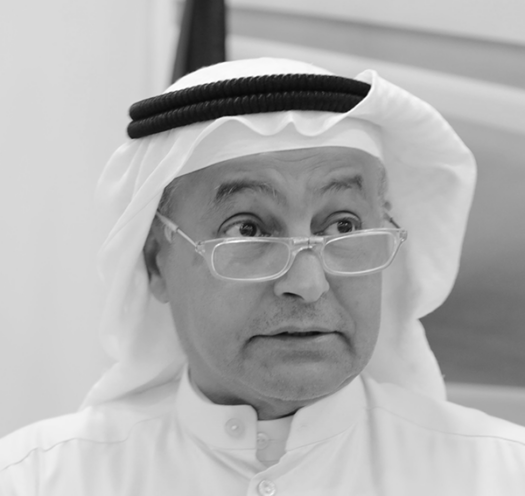


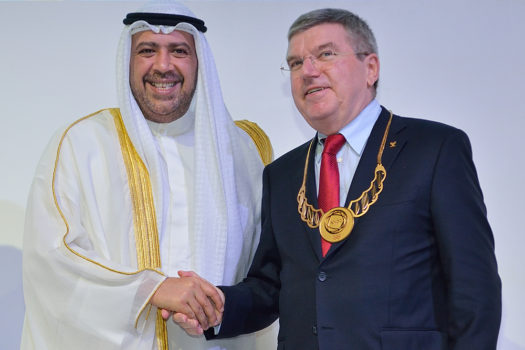
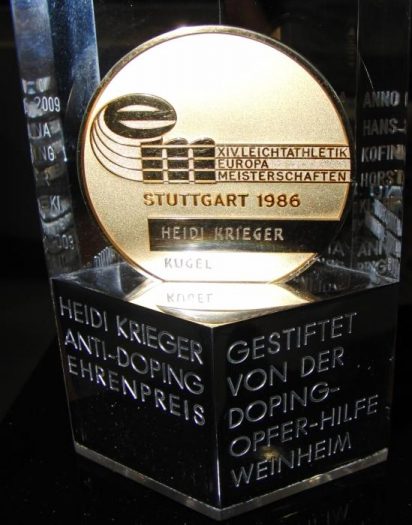
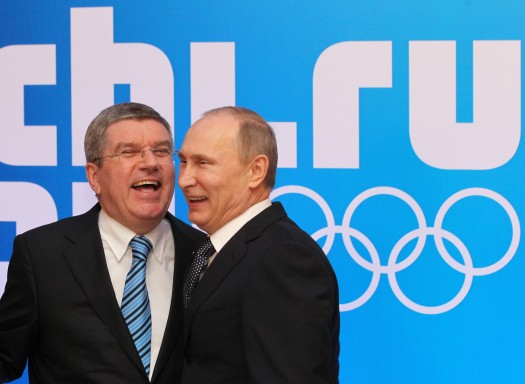
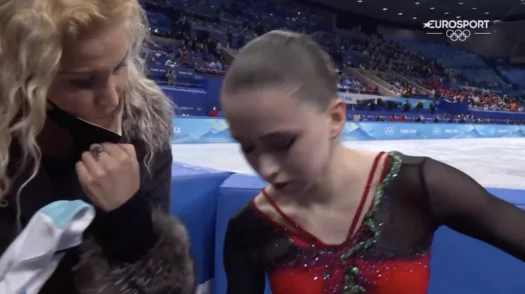
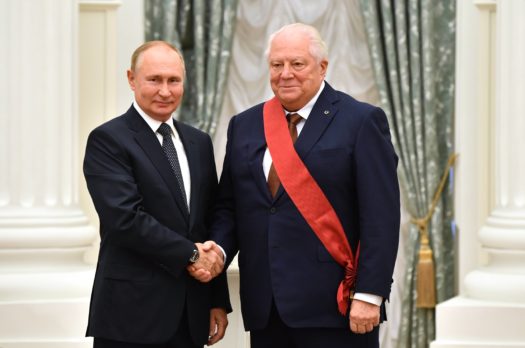
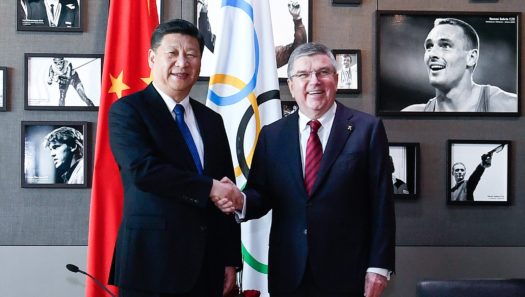
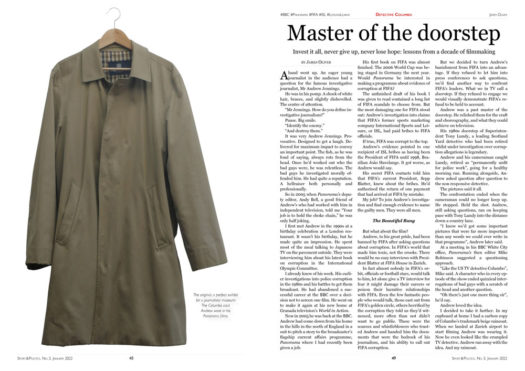
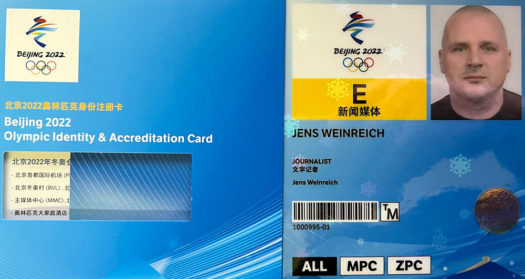
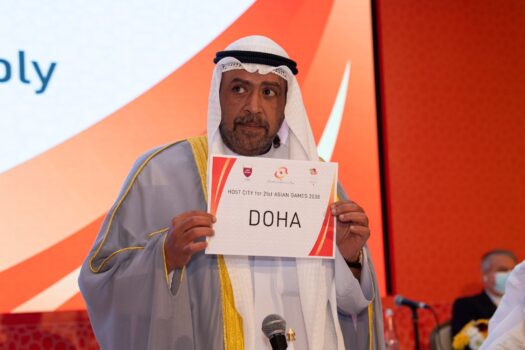
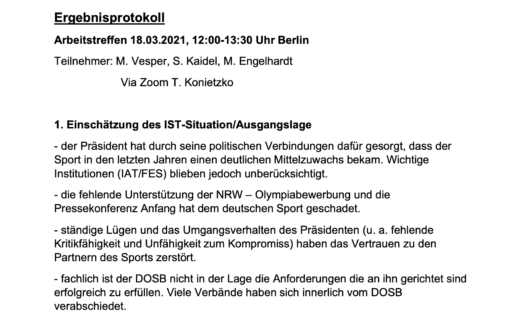
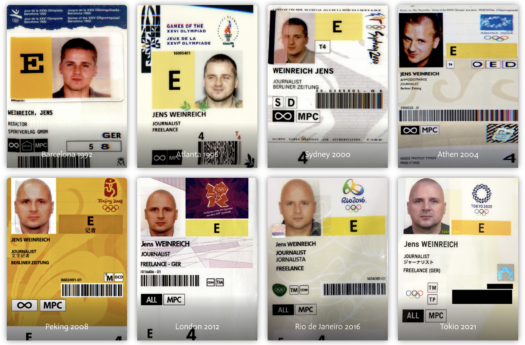

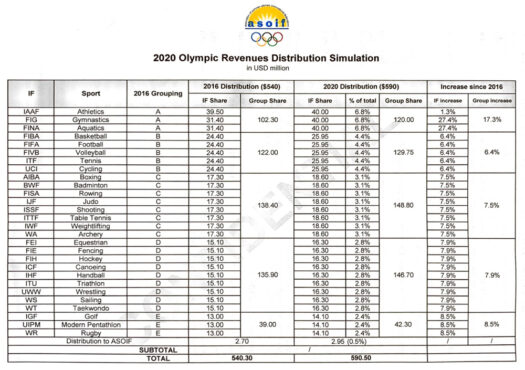
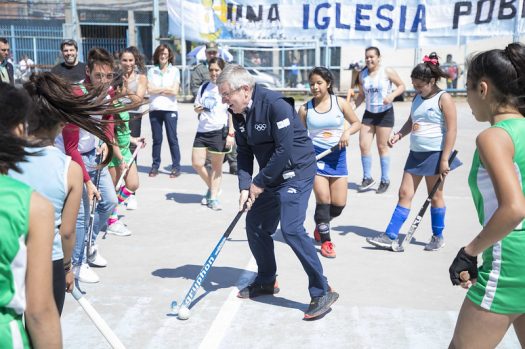
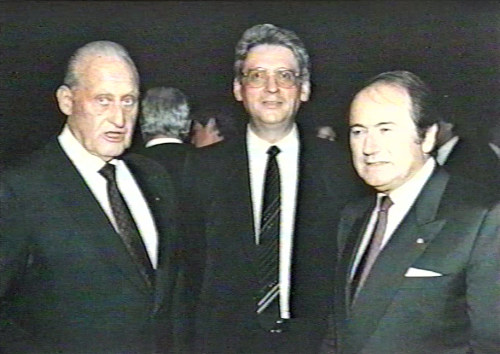
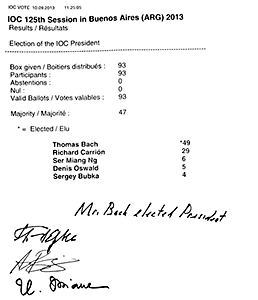
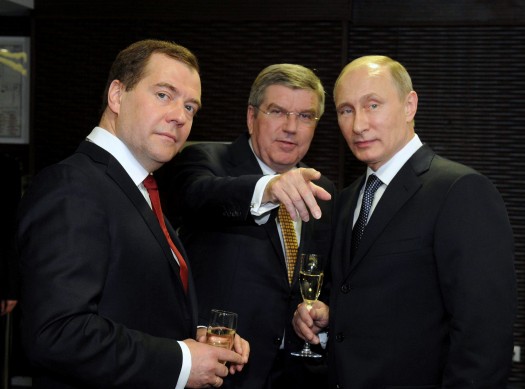
Pingback: Digitale Notizen » Blog Archive » Todo pasa: über den Fußball in Argentinien
Pingback: Thorstena» Blogarchiv » la vida es una tombola
Doping und Drogen im Fußball – paßt das vielleicht hierher?
Ex-Milan-Profi bezeichnet sich als Doping-Opfer
http://www.spox.com/de/sport/fussball/international/italien/0811/News/doping-vorwuerfe-in-der-serie-a-ac-milan.html
Also, ich finde, das passt auch zu jedem Zwanziger-Thread … Der Mann hätte womöglich in der Bundesliga Wichtigeres zu tun als seine Selbstdarstellung, er sei kein Prozesshansel, zu pflegen ;-)
Hier:
http://www.radsport-aktiv.de/forum/forum.php?FID=6&NID=225508&Seite=THEMA
AFP berichtet noch etwas ausführlicher…
Former AC Milan player a ‚victim‘ of doping culture
http://www.google.com/hostednews/afp/article/ALeqM5h5P7iRhV01zURS3NiNtuc_B-wQVg
Heute bei sport inside: „Wer ist der nächste?“ – Warum immer mehr ehemalige italienische Fußballprofis an einer seltenen und unheilbaren Muskelschwäche erkranken und sterben
Canadian Press: Doping charges for 13 on same soccer team
DFB: NADA und DFB einig in Anti-Doping-Strategie
Der Burghausener ist demnach wohl bei einer der ebenfalls angesprochenen Wettkampfkontrollen aufgefallen…
sport inside (Mo, 09.02.09): „Die Hand Gottes als Nationaltrainer“ – Ist Diego Maradona der Aufgabe als Nationalcoach gewachsen?
Fritz Sörgel im Tagesspiegel: Spritzenreiter – Doping im Fußball
Nächsten Montag bei sport inside: „Gefährliche Vorbeugung“ – Warum viele Spitzensportler schon prophylaktisch zu Schmerzmitteln greifen
Pingback: Stil- und Textkritik: der FIFA-Ethikcode : jens weinreich
Pingback: Don Julio und die Ticket-Frage : jens weinreich
Pingback: Messi Watching (II): Argentina vs Südkorea : jens weinreich
Pingback: Südafrika, Tag 15: The Bull Run, Dias : jens weinreich
Pingback: Deutschland vs Argentinien : jens weinreich
Pingback: Die märchenhaften Reichtümer des FIFA-Finanzchefs Don Julio Grondona: woher kommen mehr als 100 Millionen Dollar auf seinen Auslandskonten? : jens weinreich
Pingback: Die märchenhaften Reichtümer des FIFA-Finanzchefs Don Julio Grondona: woher kommen mehr als 100 Millionen Dollar auf seinen Auslandskonten? • Sport and Politics
Pingback: Stil- und Textkritik: der FIFA-Ethikcode • Sport and Politics